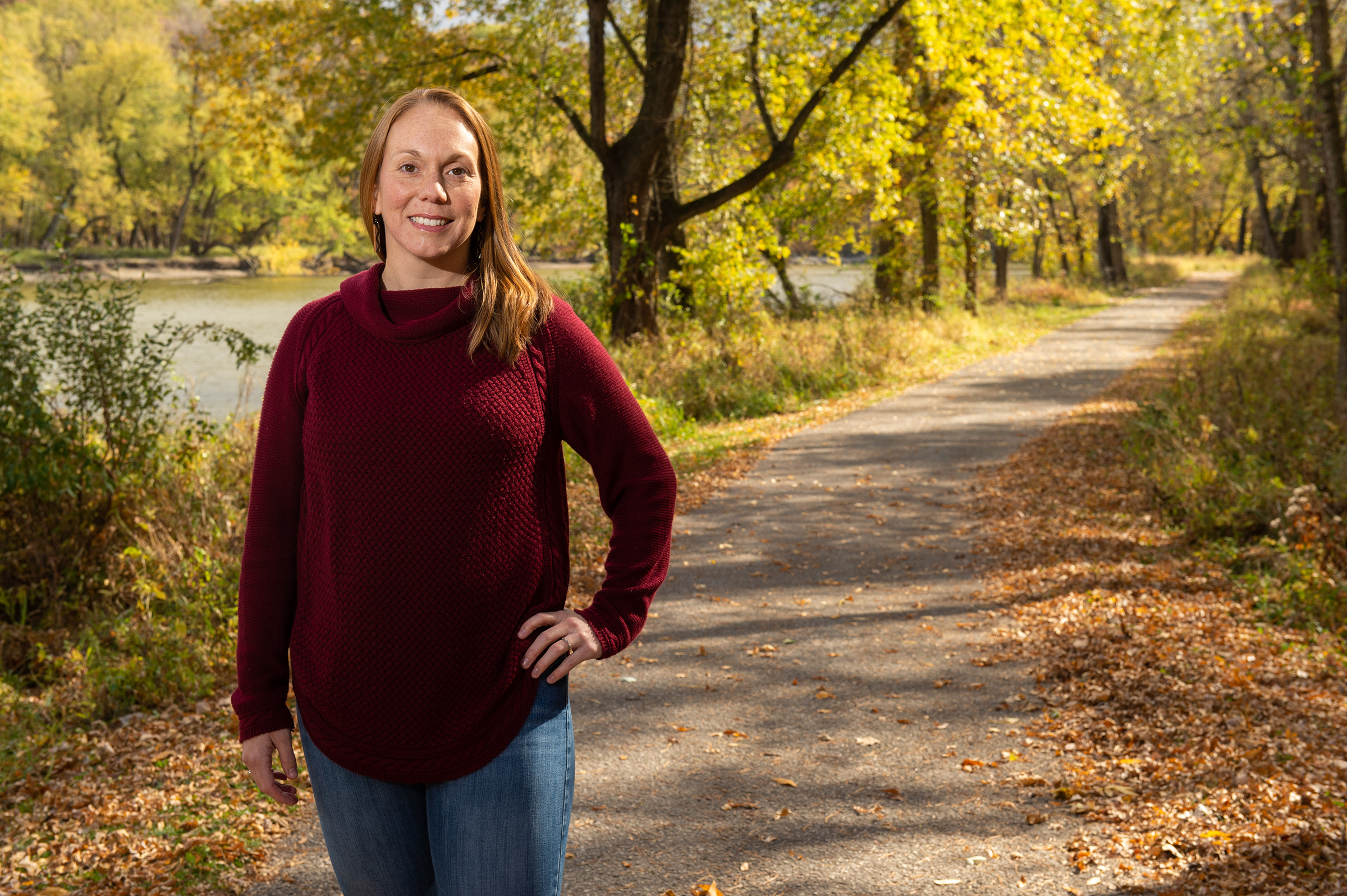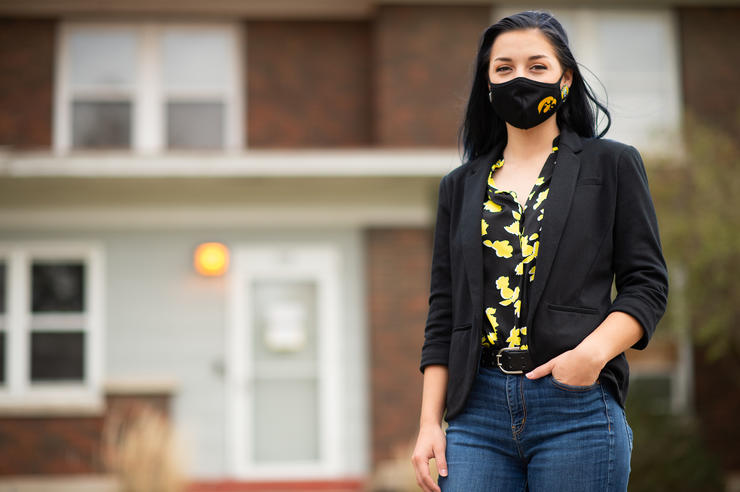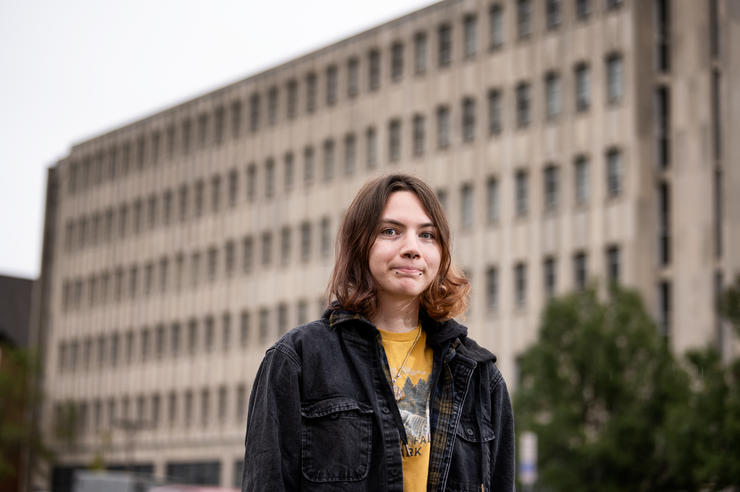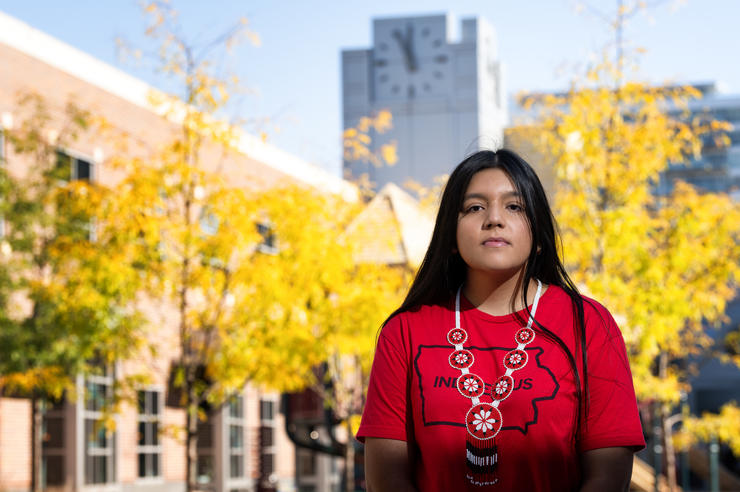Offering students support when they need it most

Kelly Clougher knows she doesn’t look like a Native American.
“I’m a redhead,” she says. “I have light skin.”
That’s unusual for Native Americans. It surprises people when they learn she’s a descendant of the Ottawa Nation in Michigan.
“It gives me an opportunity to tell them that there are many shades to our skin,” says Clougher, a staff psychologist and assistant director for outreach in University Counseling Service. Her work involves building community among Native American students, faculty, and staff, and educating others that Native people are not a thing of the past, but are resilient people with vibrant cultures.
Clougher says her work in counseling started at an early age. She grew up with family members who struggled with mental health and addiction, and she often filled the role as caretaker for her three siblings. She learned she was good at helping others, and it wasn’t long before she realized she could make a career using those skills.
“We want to let students know that they matter, to reach out to them and share our cultural overlaps.”
“Family and friends trusted me, so I knew that was a strength early on,” she says.
She also saw how she benefited from not looking like what people think a Native American looks like, as her friends and family members endured racism that was rarely directed at her because of her fair complexion.
“I saw how passing helped me and how it couldn’t help my family members,” she says. “It made me understand the role of privilege and power in society.”
Native American Council
The mission of the Native American Council (NAC) is to promote and improve the quality of life of Native American faculty, staff, and students at the University of Iowa. Its goals:
- Address the diverse needs and concerns of Native Americans on campus
- Act as a voice for Native faculty, staff, and students
- Serve as a formalized liaison between Native staff, faculty, students, and the greater University of Iowa communities
- Support the University of Iowa effort toward recruitment and retention of Native faculty, staff and students
Iowa Edge
The University of Iowa is an exciting place full of academic, cultural, and social opportunities. Yet, attending a large university can be overwhelming and a little intimidating. The Iowa Edge Program aims to ease concerns and ensure a successful academic and social transition by helping students:
- Meet faculty and campus leaders who will support them during their college experience
- Build community with a group of peers before the semester begins
- Develop leadership skills for success in class, on campus, and in life
Latino Native American Cultural Center
Founded in 1971, the Latino Native American Cultural Center (LNACC) aims to develop and foster a sense of belonging where students can authentically engage with their personal, academic, cultural, emotional, and spiritual identities in a safe, trusting, loving, non-competitive, non-judgmental, yet challenging space. Over the years, this center has become home to many students and student organizations that sponsor conferences, powwows, study groups, community educational programs, boycotts, and rallies to address community and campus issues.
At Iowa, Clougher says her job is to help all students find others like them to develop strong support networks at a time in their lives when they most need them.
“We want to let students know that they matter, to reach out to them and share our cultural overlaps,” she says. “Students of color in particular have trouble adjusting here because it’s hard to find students who share your same background. It’s important to find our community on a predominantly white institution.”
Native American students have a special set of circumstances that sets them apart, she says. They carry a lot of historical trauma from the violence, genocide, and oppression that dates to the 15th century. Native culture is also seen as a historical relic, something from long ago, causing Native Americans to feel invisible.
“People ask, ‘How Native are you?’ and wonder if we are still a vibrant culture,” she says. “There’s a belief that we’re a people of the past, which leads to a lot of assumptions and biases from non-Native students.”
Iowa also has only a small number of Native American students—less than 1% of undergraduate enrollment—so finding each other to build those connections is difficult, Clougher says. To find them, she actively seeks Native American students to connect and build a thriving community. She’s president of the university’s Native American Council, which she joined when she first arrived at Iowa in 2013, putting her in a good position to make those connections.
She’s also active in the Latino Native American Cultural Center and Iowa Edge, a program that helps selected students from traditionally disadvantaged groups learn more about how to succeed in college, both of which give her more opportunities to build community. She also connects students with others on campus who might have ideas for outreach, activities, or to make the university a more welcoming place, and helps support them as they push forward.
“It’s nice to be in an authentic setting where we can tell our stories, and where we can trust one another’s stories,” she says. “That helps with the healing process.”
As a Native American herself, even if it’s hard to tell at first glance, she says she knows how to help students know that they matter.
“I have a passion for improving the experiences of Native Americans on campus through involvement with the Native American Council,” she says.


